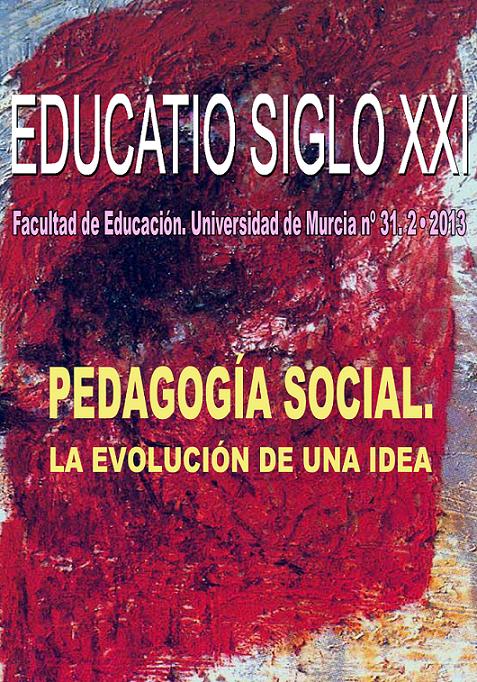Prison education and social rehabilitation: musical intervention from a cognitive-behavioral paradigm
Abstract
Indeed, musical education, from the very beginning of modern prison system, - in the mid-nineteenth century- , has provided a powerful tool of socialization. However, its development and implementation has been carried out unevenly in different national prison administrations of the world. From a purely educational perspective, several learning intervention programs, which has been developed in prison, have shown its effectiveness, not only in its therapeutic dimension but also in the sphere of re- socialization of an individual.
Different paradigms of intervention –behavioral, psychodynamic or cognitive-behavioral– have tried to weave the personal factor –psychotherapy– and the social function of the various programs aimed at reintegration, with mixed results in each case. This article, which arises from shared reflection on prison and education among the areas of Criminal Law and Music in Castilla-La Mancha University (UCLM), will examine –in order to analyze the bias and prejudices given in different models–, different theoretical approaches in musical prison programs and assess the adequacy of cognitivebehavioral paradigm as a basis for designing intervention programs in Spanishprison contexts in order to ensure the acquisition of basic skills needed to live in freedom.
Downloads
-
Abstract1877
-
PDF (Español (España))1210
Original work publishes in this journal is subject to the following terms:
1. Murcia University Press (the publishing house) holds the copyright of the publishes work, and favours and allows their reutilization under the use license stated in point 2.
© Servicio de Publicaciones, Universidad de Murcia, 2015
2. Work is published in the electronic edition under a license (Creative Commons Reconocimiento-NoComercial-SinObraDerivada 4.0 España (legal text). They can be copied, used, disseminated, transmitted and publicly presented, as long as: i) authorship and original publication source is acknowledged (journal, publishing house and URL of the work); ii) are not used for commercial purposes; iii) the existence and specifications of this use license is stated.
3. Conditions for self-archive. Authors are allowed and encouraged to disseminate electronically the pre-pint (before review) and/or post-print (accepted for publication) versions of their work before their publication since that favours earlier circulation and dissemination resulting in an increased chance for the authors to be cited and for the work to reach a bigger share of the academic community. Colour: RoMEO: green.








